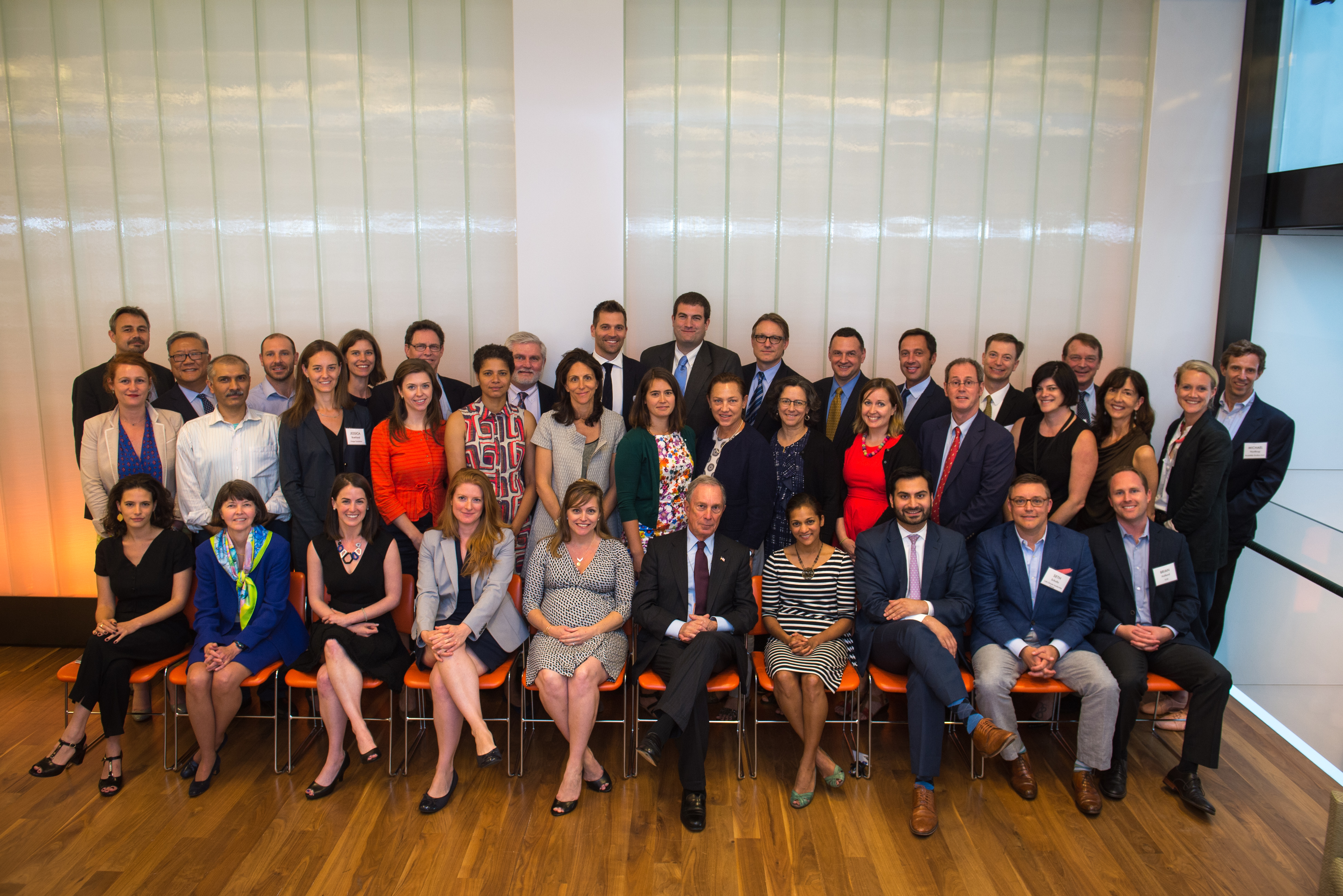
Addressing Climate Change: Cities Lead The Way
September 25, 2015
By Antha N. Williams, Bloomberg Philanthropies Environment Team
Climate change has no borders. It affects every region, every country and every community on the planet. So, how do we gather the will needed to address global climate change? The answer may be more local than you think.
This week, the United Nations ramps up climate change discussions through the expected adoption of the Sustainable Development Goals, in particular, SDGs 7, 11 and 13 which promote strong action on climate change, sustainable cities and clean energy for all.
Read moreClean cities, clean planet
September 17, 2015
By Conor Riffle, Director, Cities and Data Product Innovation,
When I first began visiting cities to discuss climate change ten years ago, large-scale reliance on renewable energy was a futuristic dream. Masdar City in Abu Dhabi was still just a drawing on paper. Tokyo’s cap and trade system was four years away from launch. And very few city governments across the world were even thinking about committing to power their cities entirely from renewable sources.
Read more
How Kansas City is Leading Energy Efficiency Action in the Heartland
September 8, 2015
Buildings may currently be responsible for more than 50 percent of carbon emissions in Kansas City, Missouri. Improving the energy performance of the city’s largest buildings could reduce these emissions by almost 590,000 tons of carbon a year – the equivalent of taking 124,211 cars off the road or diverting 211,470 tons of waste from landfills. Taking steps toward achieving carbon reductions that lead to cleaner air and have the potential to reduce energy costs and create jobs requires city leaders to take active and bold steps to drive change.
Read moreStatement by Dr. Kelly Henning on CVS Health’s Announcement on the Impacts of its Tobacco Sale Ban
September 3, 2015
“Bloomberg Philanthropies commends CVS Health for taking the bold move to end tobacco sales and use data to evaluate the effects of that decision. As a metrics-driven foundation, we believe data is vital to help identify, address and help overcome public health challenges. The data released by CVS, including information on how its move to end tobacco sales reduced purchases statewide, demonstrates that when private companies take action against tobacco, they have the potential to impact the broader public in a positive way. This year, as the United Nations makes tobacco reduction part of its Sustainability Development Goals, this is one more step forward towards reducing the global use of tobacco – and a true example of corporate social responsibility.”
Read moreChanging Tobacco Attitudes & Behavior – Combating Misleading Big Tobacco Ad Campaigns Worldwide
August 20, 2015
By Jennifer Ellis, Bloomberg Philanthropies Public Health team
The anti-tobacco movement lost a great advocate this week with the death of Warren Braren, one of the first whistle-blowers to expose the misleading advertising tactics of the tobacco industry during the 1960s and 1970s. Braren’s 1969 testimony about the National Association of Broadcasters’ nonexistent self-regulatory program spurred a national debate that ultimately led to a congressional ban on tobacco advertising on broadcast media in the United States.
Read moreCity Innovators Share What Idea Generation Means to Them
July 21, 2015
Idea generation is a key component of the innovation teams (i-teams) model at Bloomberg Philanthropies. In order to address the most critical issues in their cities, i-teams seek out the advice and counsel of a number of stakeholders: residents, government officials, community leaders, innovators from other cities, and more. From there, the creativity kicks in, as i-teams branch off in numerous directions in order to develop actionable ideas and solutions.
By leveraging best-in-class idea generation techniques and a structured, data-driven approach to delivering results, Mayors have effectively used this approach with their i-teams on issues as diverse as murder reduction, economic development, and customer service.
Bloomberg Philanthropies asked i-teams directors and team members to define what idea generation means to them, and share their thoughts on how they approach this vital step in government innovation.
Read more
How the Rapid Response Mechanism is helping to lower teen pregnancy in Bolivia
July 20, 2015
In Bolivia, teenagers face damaging myths about contraception: IUDs cause cancer and contraception can make you sterile. With parents reluctant to discuss protection, young adults who want to be sexually active sometimes ask older friends for contraception or simply take their chances and hope for the best. Lack of resources and misunderstandings around how to obtain and properly use contraception has made teen pregnancy a significant problem in Bolivia. In fact, 18 percent of Bolivian girls ages 15-19 are pregnant or have at least one child.
In response, the Bolivian government and Ipas, a non-profit organization focused on empowering women to exercise their sexual and reproductive rights, launched a pilot project to open up to 22 health centers offering youth-friendly contraceptive services in and around La Paz.
Read more3 Tips for Today’s Government Innovator: Lessons Learned from the Mayors Challenge
July 17, 2015
Despite tackling incredibly different social challenges, government innovators often find themselves in need of useful tips to take on tough issues in cities. After working with winners and finalists for the European Mayors Challenge, Innovation Unit Chair Paul Roberts shares emerging insights about common challenges to implementing bold innovations
Read more
The Power of Partnerships: The First Ever Sustainable Cities Initiative Convening
June 30, 2015
One hallmark of our approach is partnerships — we are always looking for opportunities to bring together people, ideas and resources from across sectors toward a common purpose — which is why we were thrilled to convene all of our Sustainable Cities partners from across philanthropy, government, international organizations and non-profits together for the first time ever this week.
Read morePublic Art Challenge: The Winners Are…
June 23, 2015
After receiving hundreds of proposals of innovative projects that use the arts to promote and address a wide range of local and civic issues from various cities in the U.S., we announced today that four cities have been selected to receive up to $1 million each as part of the Public Art Challenge—a new program aimed at supporting temporary public art projects that engage communities, enhance creativity, and enrich the vibrancy of cities. The four selected cities are: Albany, Schenectady, and Troy, NY, which proposed a collaborative project; Gary, IN; Los Angeles, CA; and Spartanburg, SC.
Read more